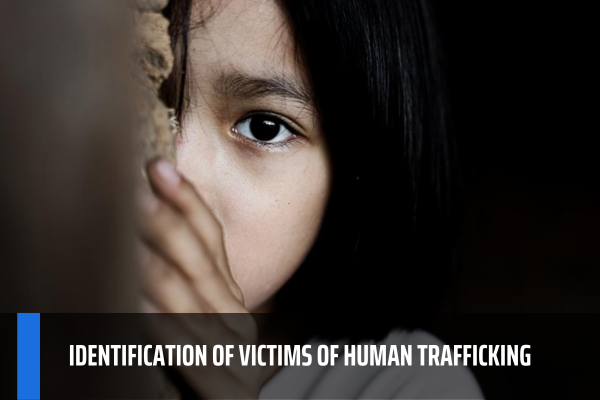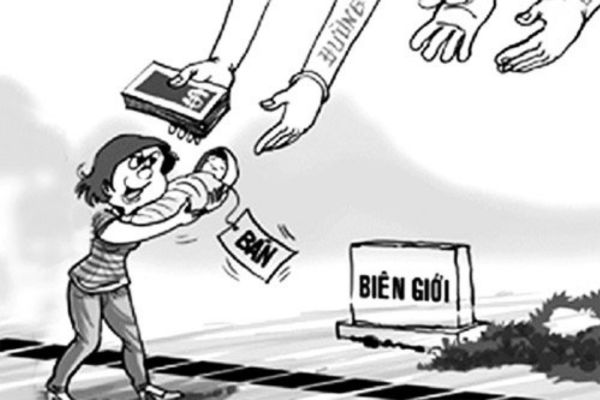What is the basis to identify a person as a victim of human trafficking? What are the sources of documents and evidences to identify victims of human trafficking in Vietnam?
What is the basis to identify a person as a victim of human trafficking in Vietnam?
Pursuant to Clause 1, Article 5, Decree 62/2012/ND-CP stipulates that a person is defined as a victim when he/she is the subject of one of the following acts:
(1) Human trafficking: Persons are regarded as a type of commodity for exchange for cash or other material benefits;
(2) Transferring or receiving persons for:
- Forced prostitution;
- Forced performing as characters for the production of video tapes, discs, paintings, photos, calendars and articles in other forms with content propagating depraved lifestyle and pornography;
- Forced performances for others to watch their bodies, aiming to stimulate sex;
- Sex slavery;
- Forced labor;
- Taking illegally human organs;
- Forced beggary;
- Forced to be as a wife or husband;
- Forced childbirth contrary to their will;
- Forced to commit acts of law violation;
- For other inhuman purposes.
(3) Recruiting, transporting or harboring persons for performance of acts specified in Points a and b of Clause 1 of Article 5, Decree 62/2012/ND-CP or for other inhuman purposes.

What is the basis to identify a person as a victim of human trafficking? What are the sources of documents and evidences to identify victims of human trafficking in Vietnam? (Picture from internet)
What are the sources of documents and evidences to identify victims of human trafficking in Vietnam?
Pursuant to Clause 2, Article 5 of Decree 62/2012/ND-CP stipulates as follows:
Grounds defining victims
...
2. The identification of victims must be based on the following sources of documents and evidences:
a/ Documents and evidences supplied by procedural bodies;
b/ Information and documents supplied by victim-rescuing agencies;
c/ Information and documents supplied by overseas Vietnamese missions;
d/ Documents supplied by competent overseas agencies or organizations;
dd/ Statements and documents supplied by victims;
e/ Statements and documents supplied by persons who commit acts specified in Clause 1 of this Article;
g/ Statements and documents supplied by persons who are aware of the matters;
h/ Other lawful information and documents.
Thus, the identification of victims must be based on the following sources of documents and evidences:
- Documents and evidences supplied by procedural bodies;
- Information and documents supplied by victim-rescuing agencies;
- Information and documents supplied by overseas Vietnamese missions;
- Documents supplied by competent overseas agencies or organizations;
- Statements and documents supplied by victims;
- Statements and documents supplied by persons who commit acts specified in Clause 1 of Article 5 of Decree 62/2012/ND-CP;
- Statements and documents supplied by persons who are aware of the matters;
- Other lawful information and documents.
Which agencies have the competent to apply protection measures to victims of human trafficking in Vietnam?
Pursuant to the provisions of Article 8 of Decree 62/2012/ND-CP stipulates as follows:
Competence to apply protection measures
1. Agencies competent to apply protection measures include:
a/ The investigating police offices in the People's Public Security;
b/ The criminal investigation offices in the People’s Army;
c/ The border guard;
d/ The Marine Police Force;
dd/ The People's Procuracies and the Military Procuracies at all levels;
e/ The People's Courts and the Military Courts at all levels;
g/ The People's Committees of communes, wards or townships, district-level Labor- War Invalids and Social Affairs Sections, social relief establishments and victim support establishments;
h/ Overseas Vietnamese representative missions.
2. Persons competent to issue decisions on application of protection measures include:
a/ Heads, deputy heads of the investigating police offices in the People's Public Security, are competent to issue decisions to apply the protection measures specified in Clauses 1, 2,3,4,5, 6 and 7 of Article 7 of this Decree to victims and their relatives in matters, criminal cases being handled by their respective agencies;
b/ Heads, deputy heads of the investigation police offices in the People's Army, are competent to issue decisions to apply the protection measures specified in Clauses 1, 2, 3, 4, 5, 6 and 7, Article 7 of this Decree to victims and their relatives in matters, criminal cases being handled by their respective offices;
c/ The director of the Drug-Related Crime Prevention and Combat Department of the Border Guard, heads of task teams of the Drug-Related Crime Prevention and Combat Department of the Border Guard, commanders of provincial-level Border Guards, heads of border posts, heads of Marine Guard Fleets and commanders of border gate ports, are competent to issue decisions to apply the protection measures specified in Clauses 1, 2, 3, 4, 5, 6 and 7, Article 7 of this Decree to victims and their relatives in matters, criminal cases being handled by their respective agencies. When the heads stipulated at this Point are absent, one of their deputies may be authorized to implement heads' powers defined at this Point and must be responsible before his/her heads for the assigned tasks;
d/ Directors, regional commanders, heads of the Drug-Related Crime Prevention and Combat Sections, heads of the Drug-Related Crime prevention and combat task teams, heads of marine guard fleets and heads of the marine groups and heads of the marine teams of the Marine Police Force, are competent to issue decisions to apply the protection measures defined in Clauses 1,2,3, 4,5,6 and 7, Article 7 of this Decree to victims and their relatives in matters, criminal cases being handled by their respective agencies. When the heads defined at his Point are absent, one of their deputies may be authorized to implement heads' powers defined at this Point and must be responsible before his/her head for the assigned tasks;
dd/ Heads and deputy heads of the People's Procuracies are competent to decide on the application of the protection measures specified in Clauses 1, 2 and 5, Article 7 of this Decree to victims in the criminal cases being handled by their respective agencies; propose the investigating police offices in the People's Public Security or the criminal investigation offices in the People's Army, which have handled the cases, to apply measures of safety protection for victims and their relatives;
e/ Court presidents, vice presidents and judges presiding over court hearings, are competent to decide on the application of the protection measures specified in Clauses 1,2,4, 5 and 8, Article 7 of this Decree to victims and their relatives in criminal cases being handled by their respective agencies; propose the investigating police offices in the People's Public Security or the criminal investigation offices in the People' Army, which have handled the cases, to apply measures of safety protection for victims and their relatives;
g/ Chairpersons of People's Committees in commune/ward/ township, heads of the district-level Sections of Labor, War Invalids and Social Affairs, directors of the social relief establishments and directors of the victim support establishments, are competent to decide on the application of protection measures specified in Clauses 1, 2, 4 and 5, Article 7 of this Decree to victims and their accompanying relatives, who are received by their respective agencies; to propose competent agencies and/or persons specified in this Article to apply measures of safety protection for victims and their relatives;
h/ Heads of overseas Vietnamese representative missions are competent to decide on the application of protection measures specified in Clauses 1, 2, 4 and 5, Article 7 of this Decree to victims and their accompanying minors, who are Vietnamese citizens in the host territories or countries.
....
Accordingly, agencies competent to apply protection measures include:
- The investigating police offices in the People's Public Security;
- The criminal investigation offices in the People’s Army;
- The border guard;
- The Marine Police Force;
- The People's Procuracies and the Military Procuracies at all levels;
- The People's Courts and the Military Courts at all levels;
- The People's Committees of communes, wards or townships, district-level Labor- War Invalids and Social Affairs Sections, social relief establishments and victim support establishments;
- Overseas Vietnamese representative missions.
LawNet
